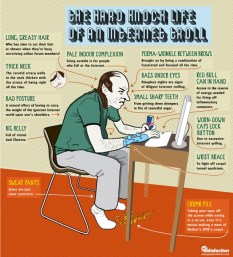
Glenn Greenwald, a journalist, constitutional lawyer, commentator, and author of three New York Times best-selling books on politics and law, has been working with NBC News in publishing a series of articles on how covert government agents infiltrate the Internet to “manipulate, deceive, and destroy reputations.”
The information is based on documents leaked by National Security Agency (NSA) whistleblower Edward Snowden. Greenwald’s article, How Covert Agents Infiltrate the Internet to Manipulate, Deceive, and Destroy Reputations, is based on four classified documents produced by the British spy agency GCHQ, and presented to the NSA and three other English speaking agencies reportedly part of “The Five Eyes Alliance.”
In this shocking piece, Greenwald publishes a copy of a spy training manual used entitled: “The Art of Deception: Training for Online Covert Operations.” Greenwald writes that agencies like the NSA are “attempting to control, infiltrate, manipulate, and warp online discourse, and in doing so, are compromising the integrity of the internet itself.” Greenwald writes:
Among the core self-identified purposes of JTRIG are two tactics: (1) to inject all sorts of false material onto the internet in order to destroy the reputation of its targets; and (2) to use social sciences and other techniques to manipulate online discourse and activism to generate outcomes it considers desirable. To see how extremist these programs are, just consider the tactics they boast of using to achieve those ends: “false flag operations” (posting material to the internet and falsely attributing it to someone else), fake victim blog posts (pretending to be a victim of the individual whose reputation they want to destroy), and posting “negative information” on various forums.
While this kind of counter-intelligence activity may not sound surprising given the objectives of spy agencies going after terrorists, what disturbs Greenwald (and many others) is that the discussion regarding these techniques have been greatly expanded to include the general public:
Critically, the “targets” for this deceit and reputation-destruction extend far beyond the customary roster of normal spycraft: hostile nations and their leaders, military agencies, and intelligence services. In fact, the discussion of many of these techniques occurs in the context of using them in lieu of “traditional law enforcement” against people suspected (but not charged or convicted) of ordinary crimes or, more broadly still, “hacktivism”, meaning those who use online protest activity for political ends.
The title page of one of these documents reflects the agency’s own awareness that it is “pushing the boundaries” by using “cyber offensive” techniques against people who have nothing to do with terrorism or national security threats, and indeed, centrally involves law enforcement agents who investigate ordinary crimes.
No matter your views on Anonymous, “hacktivists” or garden-variety criminals, it is not difficult to see how dangerous it is to have secret government agencies being able to target any individuals they want – who have never been charged with, let alone convicted of, any crimes – with these sorts of online, deception-based tactics of reputation destruction and disruption.
And while these leaked documents concern the British spy agency, Greenwald is quick to point out that the Obama administration has actually been open and forward about using such techniques in the U.S.:
Government plans to monitor and influence internet communications, and covertly infiltrate online communities in order to sow dissension and disseminate false information, have long been the source of speculation. Harvard Law Professor Cass Sunstein, a close Obama adviser and the White House’s former head of the Office of Information and Regulatory Affairs, wrote a controversial paper in 2008 proposing that the US government employ teams of covert agents and pseudo-”independent” advocates to “cognitively infiltrate” online groups and websites, as well as other activist groups.
Sunstein also proposed sending covert agents into “chat rooms, online social networks, or even real-space groups” which spread what he views as false and damaging “conspiracy theories” about the government. Ironically, the very same Sunstein was recently named by Obama to serve as a member of the NSA review panel created by the White House, one that – while disputing key NSA claims – proceeded to propose many cosmetic reforms to the agency’s powers (most of which were ignored by the President who appointed them).






